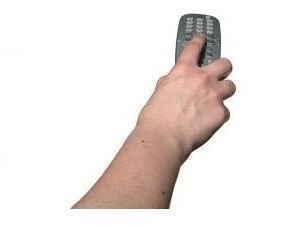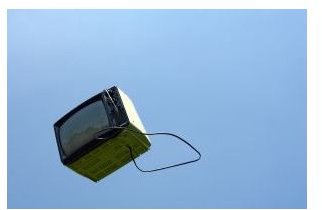What is DTV - Detailed review
The DTV Difference
Simply put, DTV is digital television. DTV can be used to describe a digital television set or the way in which TV shows are broadcast. DTV broadcasting employs the same basic method as computers to code and send pictures and sounds. DTV broadcasting sends out television programs in digital codes, rather than radio waves, which is how television broadcasting has been sent out since the 1940s. What this means to you is that the picture on your screen will be clear and bright all the time, and the sound coming through the TV will be CD-quality. Other types of transmittal, such as closed captioning or emergency broadcasting text that is displayed on the screen, will come in clearly and more in line with the video it accompanies.
DTV broadcasting means you will no longer have to deal with poor-reception annoyances such as snow and static or ghostly shadows on the screen. However, DTV is rather extreme when it comes to your reception. Either you will be able to view a station in vivid clarity with superior sound, or you just will not see anything. Because of the manner in which DTV is transmitted, if reception is not good it will not be received at all.
What DTV broadcasting means to the stations that transmit television shows is that they have more flexibility. DTV allows television stations to broadcast several channels of programming all at the same time. Although this certainly benefits the TV stations, you win as well, since there will likely be many more free local channels available for you to watch in crystal clear DTV quality.
Photo Credit: sxc.hu/Annalog85
Why the Switch to DTV
While the benefits of DTV might sound nice to you and you can see why both television broadcasters and at-home viewers would benefit from using DTV, you likely still have a few questions. For instance, you may wonder why the United States government is mandating that all full-power broadcasting stations must cease transmitting any programming in the up until now used analog transmitting method and broadcast only using DTV instead. Perhaps you have wondered if it is just another way to grab a few more dollars out of the working public’s already meager pocket contents.

The reason for the government’s involvement, though, is simply that analog broadcasting was taking over too many frequencies. Several years ago, there might have only been a handful of television stations broadcasting over the airwaves, leaving plenty of frequencies available for emergency services such as police and fire departments.
However, there are only so many frequencies to go around. As of February 2009, there were nearly 2000 full-powered television stations in the U.S. That does not include low-power TV stations (there are more than 2000 of those in the United States) or the hundreds of “licensed translator stations,” such as community college-run channels and rebroadcasts of network affiliates in remote areas.
The switch to DTV will free up the frequencies currently in use by high-power TV stations (low power and licensed translator stations will be required to make the switch eventually, as well). This will provide adequate frequencies for emergency personnel, as well as commercial services providing ever-expanding wireless services.
Learn more about the switch to DTV by reading The Real Reason to Switch to Digital TV.
On the next page, find out if the switch to DTV affects you and, if so, what you will need to do in order to continue receiving television broadcasts.
Will the Switch to DTV Affect Me?
Perhaps you are wondering whether you have what is required to be able to view programs broadcast in DTV. Answer the following questions to help determine if you are DTV-ready.
- Do you subscribe to cable or satellite television? If so, you are probably ready for the switch. While some cable and satellite providers require subscribers to upgrade their equipment, they should have contacted you to notify you of any necessary changes. If you are uncertain, check your cable or satellite provider’s website or call them for details.
- Do you have a newer television set? By law, all televisions sold after March 1, 2007 must have DTV tuners, so if you bought your set in the last year or so you should be safe. In fact, most televisions manufactured from 2004 forward include DTV tuners. Check for labels or markings that say “Digital Tuner” or “Digital Receiver.” If any of those terms are present, you are ready for the switch to DTV.
- Do you have an older set? If your TV was bought prior to 1998, it is most certainly not DTV-enabled. If you purchased your television prior to 2007 and it is not a a premium model, you might not be ready for the switch. Look for the labels or markings noted in the previous question to make a determination. You can also check your manuals or the manufacturer’s website. For more help and details regarding who will be affected by the switch to DTV, check out the Bright Hub article What You Need for Digital Television. Photo Credit: sxc.hu/hberends
What Do I Need to Switch to DTV?
If you answered the previous questions and determined any television sets in your house are not ready for the switch to DTV, there are a couple of steps you can take in order to be able to continue viewing television broadcasts after the DTV switch has occurred. One option is to get rid of your older TV set and buy a new one. However, if you are watching your spending (and these days, who isn’t?) or are simply fond of your good old television, you do not have to resign to trashing it.

You will need to purchase a digital converter box that will allow your analog set to receive DTV broadcasts. This device resembles a standard cable box, and is simple to connect. (Read the easy-to-follow steps in Hooking up Your Digital Converter Box.) Each household in the U.S. is entitled to up to two coupons each worth $40 towards the purchase of a digital converter box. DTV converters start at around $50, so you can get one of about ten bucks, if you use the coupon. Apply for a coupon at the TV Converter Box Coupon Program website.
For help selecting the best DTV converter, read Choosing and Buying a Digital TV Converter Box. Armed with the proper knowledge and the right equipment, you can experience a painless - perhaps even pleasant - transition to DTV.
